The secrets of success - find out how the culture of global company Lockheed Martin can help YOUR business
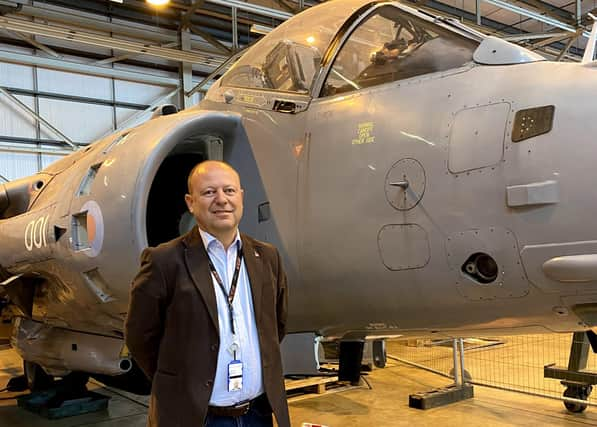

It’s a global company, with its headquarters in the USA and employing 1,800 people at more than 20 sites across the UK - including 350 in Havant.
Founded in 1995 with the merger of defence corporations Lockheed and Martin Marietta, its name is a byword for quality and expertise.
So how is Lockheed Martin run and what are the values that drive every single employee, from new apprentices to managing directors?
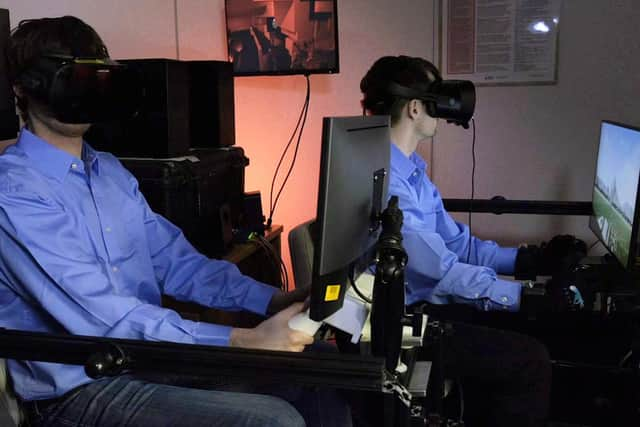

We spoke to senior managers in the Rotary and Mission Systems arm of the business, which has its head office based at Langstone Technology Park and has more than 600 employees nationwide, to discuss how aspects of its culture can be applied to any business.
Everybody who joins Lockheed Martin UK learns a simple three-step mantra that guides everything the company does. Emlyn Taylor, Group Managing Director of RMS, says: ‘Number one - ‘‘do what is right’’. Whatever happens, we never stray away from doing what is right. Integrity, honesty and truth are at our core.
‘Number two - “respect others’’. Diversity is absolutely central to our values. We have to make sure we allow people to bring the best of themselves to work. We question each other, but we always do it in a way that is respectful.’
Emlyn, who started his career at 16 as an apprentice at Plessey Defence Systems and has been at Lockheed Martin since 2001, adds: ‘Number three - ‘’perform with excellence’’. I was invited to a conference in Baltimore, USA and an admiral spoke to us. He said ‘’I want you to think of a son, brother or father in the back of a warship in a place where people want to do them harm. When you go back to your work, know that you must do everything to protect that person’’.’
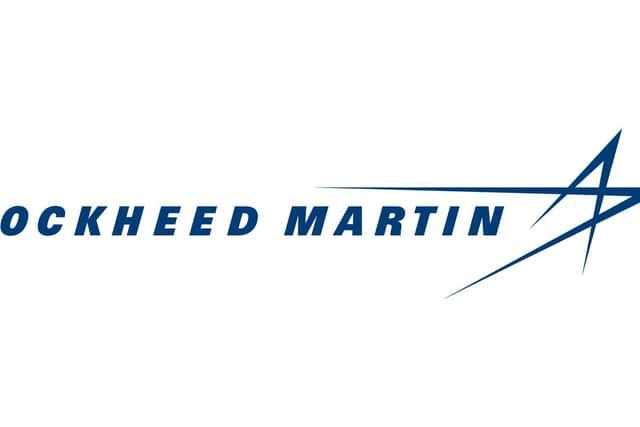

Lockheed do a lot of work with the military and Emlyn says the relationship with the customer is key when delivering excellence.
‘We say ‘’your mission is ours’’. We are a team with our customer. Some of our people are on board the aircraft carrier HMS Queen Elizabeth at the moment. Fifteen per cent of our workforce used to be in the military.
‘When the customer buys from you, they have to believe that you are going to deliver. That is how Lockheed Martin operates - it is our ethos.’
Lockheed Martin is an Armed Forces-friendly employer, holds Silver status in the Ministry of Defence’s Employer Recognition Scheme and has applied for Gold status. It is also accredited by independent assessors in areas such as quality.
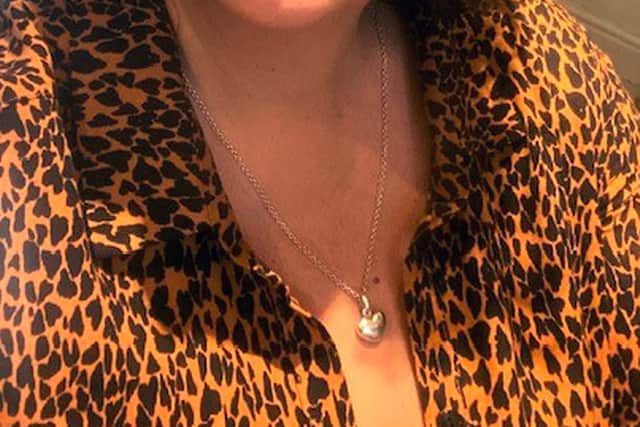

Emlyn explains: ‘We spend a lot of money ensuring we follow best practice.’
He says having the value of excellence must be supported by bringing in the right people - and preparing for the future.
‘We make sure we invest in people for tomorrow, keeping a pipeline of excellence in the industry. And it’s the diversity of the people we hire that brings new ideas.
‘There is a dearth of engineers and we have to make sure we invest in the future workforce, to let them know what opportunities there are in engineering.’
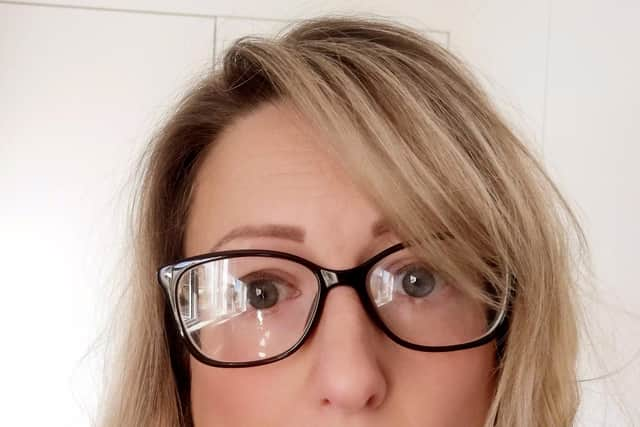

He also sees training as key.
‘Any company that wants to be successful needs to invest in training. We give people the tools to be the best version of themselves. Keep growing people once they have come. Don’t let them stagnate.’
He believes ethics and teamwork are the bedrock of performance.
‘If you want to be successful, you must put ethics first. Be proud of what you do and make sure you get the best out of everybody. Remember that a team will always deliver more than one hero.’
Team is a very important word in Lockheed Martin. Emlyn says: ‘Teams reach out to make connections with each other. The best teams own their commitments. They are accountable.
‘We all make mistakes. As a company we are doing things that have never been done before in a lot of cases. Mistakes will happen and learning from them is massively important.’
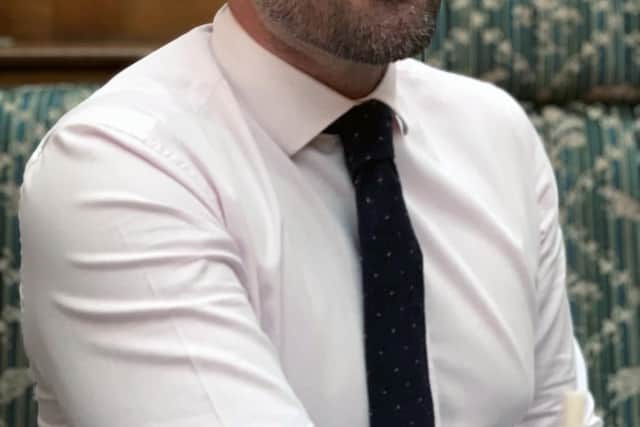

Forming good relationships with partners or companies in the supply chain is also vital.
Emlyn says: ‘We can’t do it by ourselves. Although something might have a Lockheed Martin badge on it, we work with many other companies to deliver solutions. Make sure the companies you work with have the same ethos and standards as you.’
He adds: ‘We have invested many millions in the supply chain to make sure they stayed solvent during tough times. The supply chain is essential.’
Then there is keeping a close eye on your competitors. Emlyn explains: ‘You can rest on your laurels and let others disrupt you, or you can be the disruptor. We are always looking at what are competitors are doing and making sure we do it better.’
Are you giving the customer what they want? Emlyn says: ‘We need to sell customers what they want. Listen to them, really listen. If you don’t, they will go somewhere else.
‘We do the best we can to make the right decision for our customer. It is about understanding what the customer needs and what their mission is, ensuring we have the right capability in the hands of the right people.’
Emlyn says you should be constantly evaluating your business and performance and looking beyond the here and now. It’s about innovation and evolution.
‘If you are not always looking at what you do and what might come next, somebody else will be.’
‘We hire the best people, but we have a big commitment to developing them’
So how does Lockheed Martin make itself a successful business and an attractive place to work?
Marie Wallis, Head of Human Resources for Rotary and Mission Systems, says: ‘We hire the best people who live up to the Lockheed Martin values and have the skills to deliver excellence. But we also have a big commitment to developing our people.’
The company has signed up to the 5% Club Charter, committing to 5% of the UK workforce over the next five years being young people on structured training schemes - or ‘earn and learn’ positions. It is already up to 6.5 per cent.
Marie says: ‘We have lots of experienced people, but we are also very committed to early careers. We want to employ people early and grow them within the organisation.
‘We are developing apprenticeships in new areas of the business all the time and we continue to recruit graduates. We also take more than 10 placement students each year, many of which then become our graduate recruits after they finish their degree.’
A work experience programme also gives young people an insight into the company and the many different roles that are available.
Staff are given the opportunity to experience different roles. Emlyn Taylor, Group Managing Director of RMS, says: ‘We’ve had engineers who were good at problem-solving and maths working in the finance department. Definitely a fault of many companies is to pigeonhole people. We also want people to be stretched.’
Sally Cranstone, Head of Engineering and Technology for RMS, says mentorship is important.
‘Make sure you are managing your staff’s development. We have line managers but we have also established a mentoring network. For instance we have ex-forces people who can really help others with the transition.’
The pandemic and people having to work from home has prompted Lockheed Martin to look at how it operates and the company now offers flexible work patterns and a four-day week.
Emlyn says: ‘All companies will have to think in the new normal. We have changed our policies to not only allow but encourage hybrid working. Some people want to be in the office and that’s fine. But some don’t want to and that’s also fine. We’re a people company.’
Marie explains: ‘It’s about recognising people’s needs and circumstances. We pay competitively and offer excellent benefits, but the people aspect of the company is very important.’
Niki Pomeroy, senior HR business partner for RMS, adds: ‘It’s important to recognise that a four-day week doesn’t work for everybody. If you want to work early in the morning or late at night, then that’s fine too.’
Niki says the company has a new system to monitor performance development that focuses on continual feedback and includes peer-to-peer recognition.
‘People can ask for feedback at any time - knowing how they are doing is really important to them throughout the year, not just at the end.’
The company delivers resilience training to managers to ensure they are leading effectively. Support of managers as well as their teams is seen as very important.
Training in general is seen as key. Marie says: ‘The company is committed to training and development to enable people to do their jobs well. More than 75 per cent of people have atttended one or more learning and development events in the past year.’
There is also a knowledge transfer system, called ‘expert and the nextpert’, where those nearing retirement can pass on know-how.
‘The company is very good at supporting people and making them feel valued’
Lockheed Martin takes diversity and inclusion seriously, believing that people must be able to be themselves at work and that this will improve their performance.
Fred Elsey, Specialist Engineering Manager and Human Factors Lead – Diversity Champion for Rotary and Mission Systems, has been with the company for 15 years.
He champions diversity and inclusion to managers and helps to implement ideas and initiatives. He and his partner Jonathan are getting married next year.
Fred says: ‘When I started work, engineering organisations were very male-dominated and I was worried about how I would be perceived. But since then things have moved on massively.
‘It is really tough to have to hide who you are because of people’s reactions. It can be massively psychologically damaging.’
He says the benefits of a diverse workforce are huge.
‘It is a win-win situation for the business and the employee. If you have a diverse workforce that are inclusively managed with everybody having a voice, you have a lot more perspectives and you get better decisions and better products.
‘If you have a content workforce, you also have a low attrition rate. If people feel valued and empowered, they won’t want to leave.’
Fred says an ‘allies’ network of groups within the company enables people to have confidential personal conversations and ask for advice and support from others who understand their situation.
Diversity and inclusion and areas such as unconscious bias are also an integral part of company training, with employees shown scenarios to explain how words and actions can be perceived as discriminatory.
Fred explains: ‘It is so important that the leadership in a company buys into this. If the MD champions it, then others will see its importance.
‘Knowing that there is a zero tolerance approach and that the company will act is a big part of someone feeling they are supported.’
Marie Wallis, Head of Human Resources for RMS, says: ‘It is really important that companies consider diversity and inclusion. It’s about recognising the differences in people, the different stages in their lives and the different lives they lead.’
Niki Pomeroy, senior HR business partner for RMS, adds: ‘At Lockheed Martin we want people to bring their whole selves to work. Different perspectives, thought processes and experiences can add to a business. It makes good business sense.’
Fred explains: ‘Lockheed Martin is very much an example of a company that gets it right. As a gay employee, I was initially worried it would limit my career opportunities.
‘But I have progressed to a fairly senior position without any issues. The company is very good at supporting people and making them feel valued.’
‘It’s important to give back to the community’
As a large company in the Portsmouth area, Lockheed Martin UK is committed to involvement in a number of outreach activities.
It delivers STEM activities in local schools, attends careers fairs and has strong links with UTC Portsmouth in particular.
Portsmouth-born and Fareham-educated Sally Cranstone, Head of Engineering and Technology for Rotary and Mission Systems, says a team called Women and Allies In STEM (WAIS) has been formed to encourage more women into engineering.
Through WAIS the company has worked with schools and colleges - students are given an insight into STEM careers and partner projects, virtual work experience and help with mock interviews and CVs.
There are also Teach the Teacher events, where Lockheed Martin graduates and apprentices explain what their day-to-day roles entail so this can be fed back to students.
Meanwhile the company has worked with EBP South, whose mission is to inspire and prepare young people for the world of work by connecting education and business.
Sally says: ‘Initiatives like these are important. If you can attract a diverse workforce, that means you can attract more people. You are missing a trick if you don’t do these activities.’
Lockheed Martin employees are encouraged to take part in community outreach during their free time and the company works with Community First to find suitable projects.
Emlyn Taylor, Group Managing Director of RMS, believes successful companies make sure they give back to the community in which they operate.
He explains: ‘The community enables us to be successful, so we must give back, from cleaning ponds and beach clear-ups to supporting schools and colleges by giving leavers interview experience.
‘It all makes a difference - it’s the right thing to do, but it also makes good business sense too.’
As part of a media partnership, in 2021 The News and www.portsmouth.co.uk will be featuring a series of articles about Lockheed Martin UK and the people who work there.